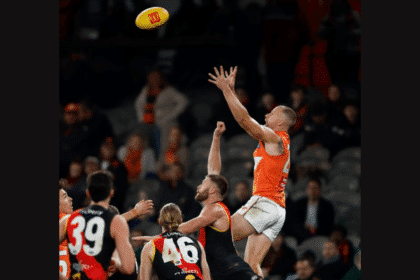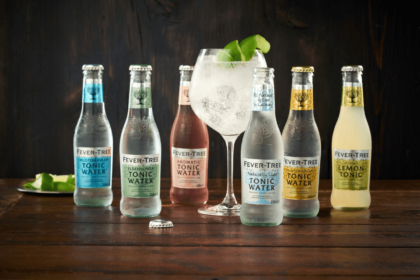With Mindshare announcing its new global positioning ‘Good Growth’, B&T sat down with Australian CEO Katie Rigg-Smith to discuss what ‘Good Growth’ represents.
At the core of ‘Good Growth’ is the idea that the world is no longer limited by geography, because of the limitless possibilities of digital platforms.
As Rigg-Smith explained, a core tenet of ‘Good Growth’ is developing understanding of how those platforms are used by individuals.
“The way people congregate around the world now used to be in physical locations,” said Rigg-Smith. “Now, no matter where you are, these platforms are allowing you to access each other.”
Values have the capacity, now more than ever, to transcend borders. However, the global positioning will still be tailored to each individual market to ensure it is as relevant as possible.
‘Good Growth’ will also synthesise with the mission Rigg-Smith has developed at Mindshare Australia over her tenure: helping clients achieve their ‘wildest ambitions’.
“We have that as our star,” explained Rigg-Smith. “We really want wild ambitions for our clients, we want things that are going to challenge status quo, we want big ideas that are going to change and shape their business.”
At its core, wildest ambitions looks for “something that goes beyond just a campaign brief for tomorrow.”
It asks, “where are we taking the client’s business in three to five years? How are we helping build tech infrastructure? How are we helping change the way that they talk to the consumer? All of those things we’re really passionate about.”
“The global positioning helps underpin that wild ambition with where the growth is going to come from, and how we are doing something that’s adding value back,” she continued.
“I think for us, it really just ladders in nicely for what we’re trying to achieve in Australia, which is a wild ambition, but it’s driven by good growth. It’s funny how it changes the conversations with clients when you stop talking to them about what are you trying to achieve in a week [or a] year, and your immediate pressures, and you start talking to them about where you want to take your business.”
That global good growth narrative also has an emphasis on a tailored approach to business, particularly when looking and diversity, inclusivity, and intentional, positive investments.
“It is about understanding the individual clients and their needs and their audience – and then, what they’re passionate about, where their stances are or how they understand their audience values.”
Rigg-Smith has been CEO of Mindshare Australia now for more than eight years. As such, she is something of an expert on growth.
For her, “growth can’t come at the cost of longevity.”
“From an agency point of view, it’s making the decisions that have the agency in mind for the future, not just something that’s going to win a piece of business tomorrow at all costs, or playing a short term gain just to get some some headlines.”
“It’s always been for me, more about the sustainability of Mindshare going forward. Making sure that we are keeping pace, that we’re doing the right thing by our people and our clients, that we’re not biting off more than we can chew. I have always had a very long term view of the business being sustainable and the growth having to be something that is a good growth for the agency.”
Indeed, it has been a period of success for Mindshare. Earlier this week, Mindshare Melbourne snared the $8 million Jenny Craig account, as well as Click Frenzy and the University of Melbourne (with Wunderman Thompson).
Reflecting on the agency’s success, Rigg-Smith said, “I think that [wild ambitions] translates into how we’re pitching differently and how we’re coming at different problems, bringing a different energy to the table.”
“We’ve always prided ourselves on being a strategic agency across the board – across all parts of our business, we think of things differently. We’ve had some great wins with great clients that have a similar idea of what they would like in the future. So I think that it comes down to the positioning, the energy, and also just talent. We all know that at the end of the day, it’s really down to the chemistry and the people in the room at the time. I’ve got an amazing team that I just adore working with.”
For GroupM generally, a significant shake up is on the horizon. Aimee Buchanan will join as group CEO, the first woman to hold such a position in Australia.
“I think our industry, particularly from a media point of view, has an amazing range of great female leaders,” said Rigg-Smith.
“It is so wonderful to see a strong female [like Buchanan] at the helm of the group. I cannot wait for that to happen and I can’t wait to work with her.”
“She’s someone I’ve always respected. And, you know, I’ve called Aimee a friend for a long time. Obviously, we were competitors against each other, but there was so much mutual respect there – I’d like to think it was mutual! It sends a great signal. Aimee and what she stands for, her approach to business and culture is exactly what we were looking for,” she continued.
“There’s great momentum coming through the group. Mediacom have Yaron [Farizon] joining and Wavemaker just won L’Oréal’s account, so there’s a lot happening for us now. Aimee is sort of the icing on the cake.”
On the position of women in the industry more generally, Rigg-Smith added, “I think we just need to keep the discussion open and make sure that we are having the discussion. I also think that there is a fear that, because you do have so many females making it to the top, you just say the problem is fixed. But if you actually spoke to a lot of young women, and women at certain ages, they say, no, it’s not.”
“As an industry, we need to be cognisant that the conversation always needs to happen. We can’t just take it as a given now that equality exists, because you’ve got a collection of female leaders. You continually need to have that discussion, and bring men in on the discussion, because we’ve got so many great men in our industry that want to make sure there’s equality.”
Finally, Rigg-Smith also shared how she has been grappling with leading through an extended period of tumult, particularly with lockdowns in Sydney, Melbourne and Queensland.
She referenced a piece of research done by a team member’s mother in the UK for LeadEQ, which articulated the idea that one of the hardest things for CEOs in COVID has been building a culture without walls.
“How do you maintain a culture of your staff when agencies are known for their energy and for their vibrancy and the creativity? How do you maintain culture when you can’t actually wrap it in anything? That’s one thing I think we’re all grappling with,” Rigg-Smith explained.
“Then as leaders, how do you continue to have emotional intelligence? How [do you do that], when you can’t actually see people outside of the video streaming? [They may be] telling you everything that you need to hear, but if you were in office, you could observe maybe that they didn’t look as happy getting their tea, or something. You can wrap your arms around it little bit differently.”
“So I think one big thing that we’re going to be grappling with as an industry is how we keep culture alive and how we continue to lead. It’s certainly something that keeps me awake at night.”
“I think that when you’re that kind of leader that likes to walk the floors, and see people and read in between the lines of what’s going on, it is really hard.”
Despite these challenges of lockdown, ultimately, Rigg-Smith was positive about what good growth means for Mindshare in Australia, and from a global perspective too.
“It’s no longer enough to add value to a consumer a product or a service – we also have to align to their values.”








